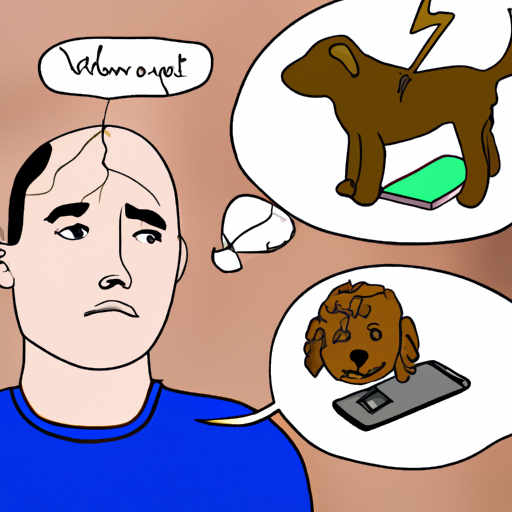Have you noticed your dog scratching excessively, or perhaps you’ve spotted bald patches in their fur? Hair loss in dogs, also known as alopecia, can affect part or all of their body. It’s a common issue but can cause significant discomfort for your furry friend. Understanding the causes of hair loss can help you identify any potential problems and seek appropriate treatment.
Table of Contents
1. Common Causes
2. Infections and Infestations
3. Hormonal Imbalance
4. Genetic Predisposition
5. Poor Nutrition
6. Stress and Anxiety
7. Frequently Asked Questions
Key Takeaways
– Hair loss in dogs can result from a range of factors, including infections, hormonal imbalances, genetics, poor nutrition, and stress.
– Recognizing the signs and causes of hair loss can help you seek timely treatment for your pet.
– Regular grooming, a balanced diet, and stress management can prevent some causes of hair loss.
Common Causes
There are several reasons why your dog might be losing hair. It’s crucial to get to the root cause to provide the best care possible.
Infections and Infestations
One of the most common causes of hair loss in dogs is skin infection or infestation. Bacterial infections can cause hair loss, as can fungal infections like ringworm. Fleas, mites, and ticks can also lead to hair loss, typically accompanied by intense itching. PetMD provides excellent resources on this topic.
Hormonal Imbalance
Hormonal imbalances can often lead to hair loss in dogs. Conditions like hypothyroidism, where the body doesn’t produce enough thyroid hormone, or Cushing’s disease, where the body produces too much cortisol, often result in hair loss.
Genetic Predisposition
Certain breeds are genetically predisposed to hair loss. For instance, Dachshunds and Greyhounds are known to develop pattern baldness, especially as they age. This article from OneTopDog provides more information on breeds prone to hair loss.
Poor Nutrition
Just like humans, dogs need a balanced diet to maintain their health. Deficiency in certain nutrients, especially protein, can lead to hair loss. A quality diet is crucial for your dog’s hair health, as discussed in this OneTopDog article.
Stress and Anxiety
Stress or anxiety can also lead to hair loss in dogs. Changes in their environment, such as moving house or a new family member, can cause stress-related hair loss. Learn more about managing dog anxiety on OneTopDog.
Frequently Asked Questions
1. Does hair loss in dogs cause pain?
Hair loss itself doesn’t cause pain. However, the underlying cause, such as skin infections or infestations, can cause discomfort or pain.
2. Can hair loss in dogs be prevented?
In some cases, yes. Regular grooming, a balanced diet, and managing stress can prevent some forms of hair loss. However, genetic and hormonal causes may not be preventable.
3. Does hair loss in dogs indicate a serious health issue?
Not necessarily. While hair loss can be a sign of underlying health issues, it can also be a normal part of aging or a reaction to environmental factors. Always consult a vet if you’re concerned about your dog’s hair loss.
Remember, your dog can’t communicate their discomfort directly. It’s important to keep an eye out for signs of hair loss and seek veterinary help when needed. Your dog relies on you to keep them healthy and comfortable, so understanding the potential causes of hair loss is crucial in your role as a caregiver.



